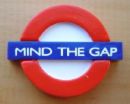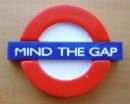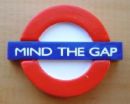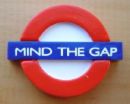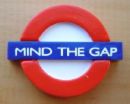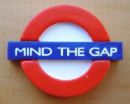 A summative work, focus on fall of dollar versus rise of euro,
A summative work, focus on fall of dollar versus rise of euro,
William R. Clark
I was tempted to give this book only four stars, because as some reviewers suggest, it is mostly a summative work, drawing heavily on several books I have already reviewed, as well as a number of studies and article. In the end I decided to go with five stars because this is the only book I have found that really drew my attention to the turning point in US-Iraq relations: not Gulf I, but rather Iraq's declared intention to break the dollar monopoly and begin trading oil in Euros. Today of course we have Iran, Russia, and Venezuela trading in currencies other than the dollar.
First off, this is one of those rare books where in addition to carefully studying the table of contents, which is superbly devised, almost an executive summary on its own, you should also *first* read the End Notes and also the Afterword by LtCol Karen Kwiatkowski, now retired, who earned lasting recognition for resigning and challenging the lies coming out of the politically-appointed Pentagon officials.
Although this book is labeled by some (who would have us ignore it) as part of the “conspiracy” literature, I find myself reading more and more books in this vein, spanning 9-11, peak oil, corporate personality, and Wall Street-Washington corruption. I have to say, with all humility, if there is one privilege I would claim as the #1 Amazon reviewer of non-fiction, it is the privilege of stating clearly and on the record that this book, and other books in this vein, are NOT conspiracy literature, but rather the survivors, the vanguard that has avoided censorship. This book may not be perfect, it may overstate the case (personally I think Bush is as dim as Feith and did not understand the Euro issue while having a childish mind easily led by Dick Cheney), but it is part of an emerging literature that cannot be denied and must be given full attention.
The book highlights and reminds that we have lost the Republic to four interacting influences: concentrated wealth including perpeptual compounded wealth concealed in corporations improperly given personality rights; a completely corrupt Congress serving corporations rather than the public interest; the end of a free press with five media conglomerates happily practicing perception management on an ignorant and inattentive public; and a Federal Reserve that is not part of the government and not acting in the public interest, but instead creating credit out of thin air, and selling that to the government at a price that is both dear, and unconstitutional.
Having come late to much of this literature, the term “proto-fascism” was new to me, but it fits: Wall Street wealth, plus political corruption, plus a military too eager to follow orders without thinking. I remind all who care to understand a military perspective that General Smedley Butler's book, “War is a Racket,” recounts his disdain for being a an “enforcer” for corporations.
The author of this book on petrodollar warfare does an excellent job of recounting the history of the dollar, setting the stage for both the end of the gold standard under Nixon, and the manner in which petrodollars from the 1970's were recycled as loans to the Third World.
There are two really superb charts from other sources in this book, one on page 105 showing “The Lie Factory” led by Dick Cheney and Doug Feith; and another on page 112 showing the claims by Cheney and others about Iraq having Weapons of Mass Destruction (WMD), both before (of course they do) and after (none found).
Today an attack on Iran looms. I have done everything I could as an individual citizen, including a protest package to the Senate, press releases, a fax to the Chief of Naval Operations and the Commandant of the Marine Corps, and a posting at OSS.Net of Howard Bloom's memorandum on a potential nuclear ambush by Iran, and Webster Tarpley's powerpoint on the fragile ground supply line from Kuwait to Baghdad. I share his view that the Siege of Baghdad will make the Siege of Stalingrad look like mercy killings. Think Black Hawk Down times a million.
This is a very fine book. It took me a year to notice it, but I will be more attentive now. New Society Publishers is in my view a national treasure. I admire them and will look forward to reading and reviewing many more books that they publish for the right reasons: to inform citizens and improve society.
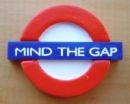 Click Here to Vote on Review at Amazon,
Click Here to Vote on Review at Amazon,
on Cover Above to Buy or Read Other Reviews,
I Respond to Comments Here or There


